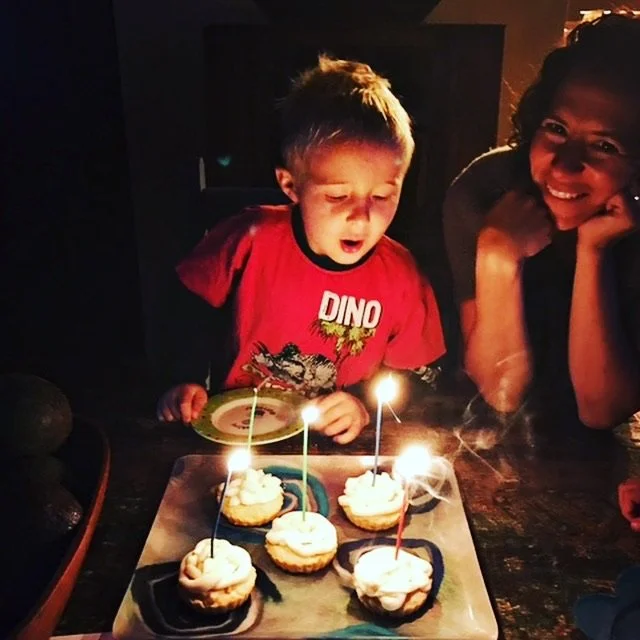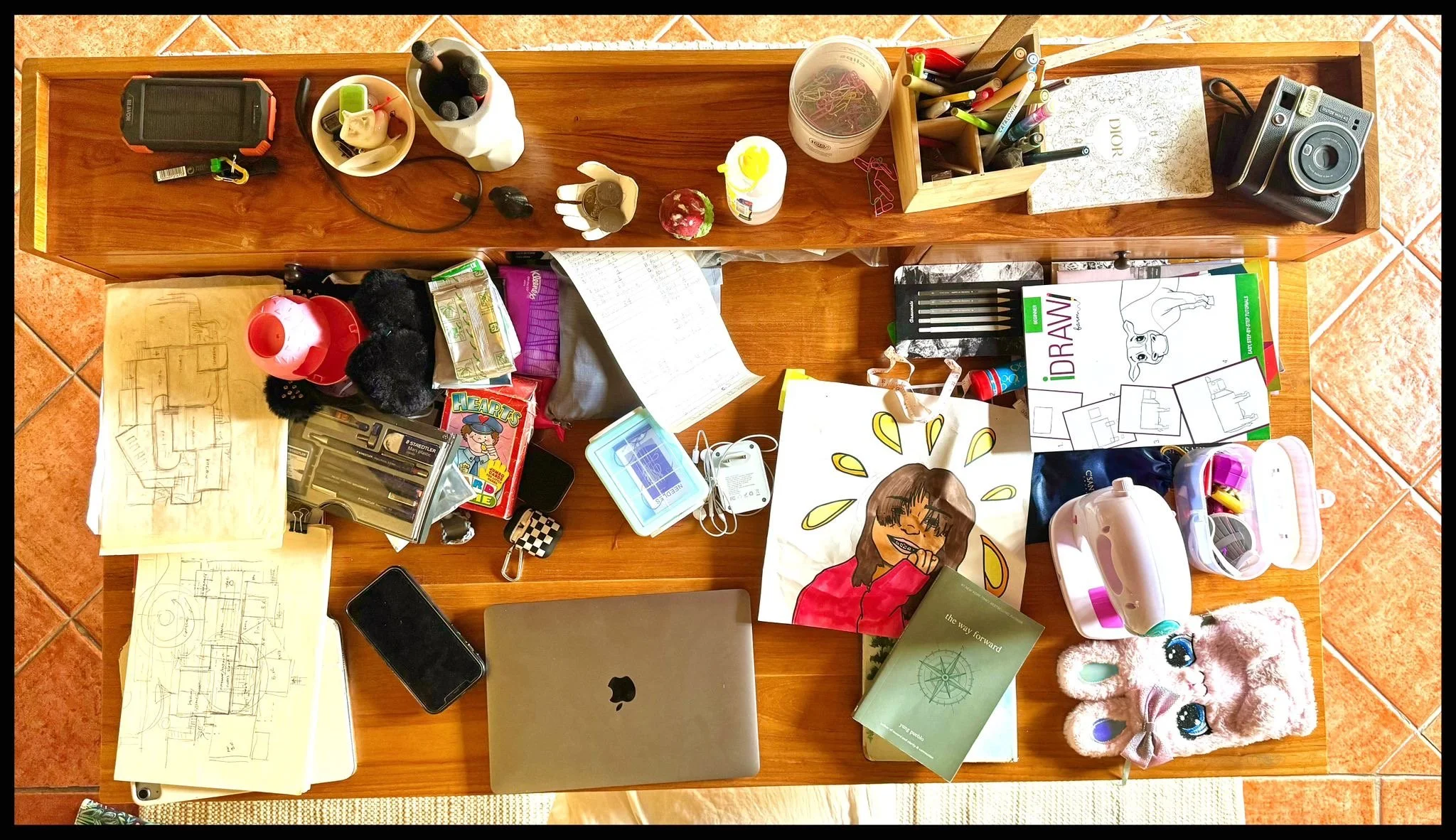Motherhood and Kinkeeping: The Mental and Emotional Load
*Kinkeeping
“Creating or maintaining family traditions, buying gifts for birthdays and holidays, coordinating medical care, and performing various forms of emotional caregiving.
A form of invisible labor, predominantly done by women, dedicated to family bonding and magic-making.”
I am not about to start complaining; I recently spent seventeen days away from my children—the longest time away from all caretaking responsibilities in the last fifteen years.
Those two weeks opened up a space for me to consider what it feels like to be without children. I entered the grocery store and only bought what I liked. I did not think about playdates or petty fights, snacks or dinner.
I felt layers of my being drift and allow space for something more raw, agitated, and emotional. It has been an amazing journey. I found space to recover from all the changes that occurred in the last eighteen months. I experienced digestion in a profound way that can’t happen when you are constantly busy. Through all this, I wanted to make space for a reality that mothers face:
We mothers often carry the emotional burden of our families. We unconsciously think about how everyone is feeling, what needs to be done to improve relationships, open communication, attend to needs, and figure out the challenges that arise. We also are (in most cases) the carriers of the logistical planning for the family. It is the mental load. We can hear our child’s screams in the middle of the night amid deep sleep. We worry about having their clean uniforms ready for school, school projects, parent-teacher conferences, jealousies among siblings, a strange feeling from our child, etc.
Allison Daminger, a Ph.D. candidate in sociology and social policy at Harvard University, published a paper in the *American Sociological Review* that breaks down the “mental load”—“cognitive labor,” in sociological terms—into four parts: anticipate, identify, decide, and monitor. She says:
“The act of putting the item on the agenda seemed to be overwhelmingly something that women were doing, as well as, on the back end, following up once the decisions had been made. And that was true, even in domains of life like household maintenance, where it was pretty clear to both parties that the man was ultimately responsible.
Women’s antennae seemed to be constantly up and looking for these things. Whereas men were often very happy to help once their partner had alerted them to the issue, and they might’ve gotten to it eventually on their own, but women were consistently getting there first and either doing it themselves or saying: ‘Hey, this is the thing you need to handle. Are you thinking about it?’”
The mental load is defined as the invisible work of running a household and managing a family. There are the never-ending, behind-the-scenes mental gymnastics required for everything to get done.
Motherhood means balancing everyone’s needs and finding a way to make the puzzle fit. It means cooking a meal that no one will call disgusting. It means taking the time to discuss something you have no interest in and trying to solve the problem of “fairness.”
My friend shared with me the difference between her desk and her husband’s: every item that no one knows where to put, every iPad that needs to get charged, and every project that is halfway done ends up on her desk. Her office has no door. The kids come in unannounced. They bring everything they need help with. Her projects get moved from a prominent place on her desk to behind it under the table. Banished.
Her husband’s desk is pristine. No Play-Doh, school projects, toys to be repaired, school forms, etc. And of course, it is tucked behind a closed door. Everyone knocks before going in, as Daddy might be working.
I am here to normalize your mental load. It isn't fiction. You aren’t overthinking it. You’ve heard: “She’s anxious, she’s uptight.” That is because, as mothers, we feel responsible for what will happen if our kids don’t have a sweater, if they get sick, and if they are unprepared for school. We are anticipating what they need!
*from May 8, 2024 New York Times article “The Constant Work to Keep a Family Connected Has a Name”
My friend’s desk
Are you interested in working on your personal development? Are you looking for a life coach or a life consultant? Are you feeling stagnant? Do you want to jumpstart change?
My transformational approach is a process where awareness, alignment, and action work together as catalysts to create momentum for change.
*Awareness is knowing what you genuinely want and need.
*Alignment is the symmetry between our values and our actions. It means our inner and outer worlds match.
*Action is when you are conscious that what you say, do and think are in harmony with your values.
Together we build an understanding of what you want to accomplish, and delve deeply into building awareness around any thoughts and assumptions that you may already have. To truly transform your life, I will empower you to rethink what’s possible for you.
__
Learn more about my approach to life consulting and relationship coaching here or get in touch for your free 30-minute consultation here! Don’t forget to follow along @LilyManne on social for more regular updates!


